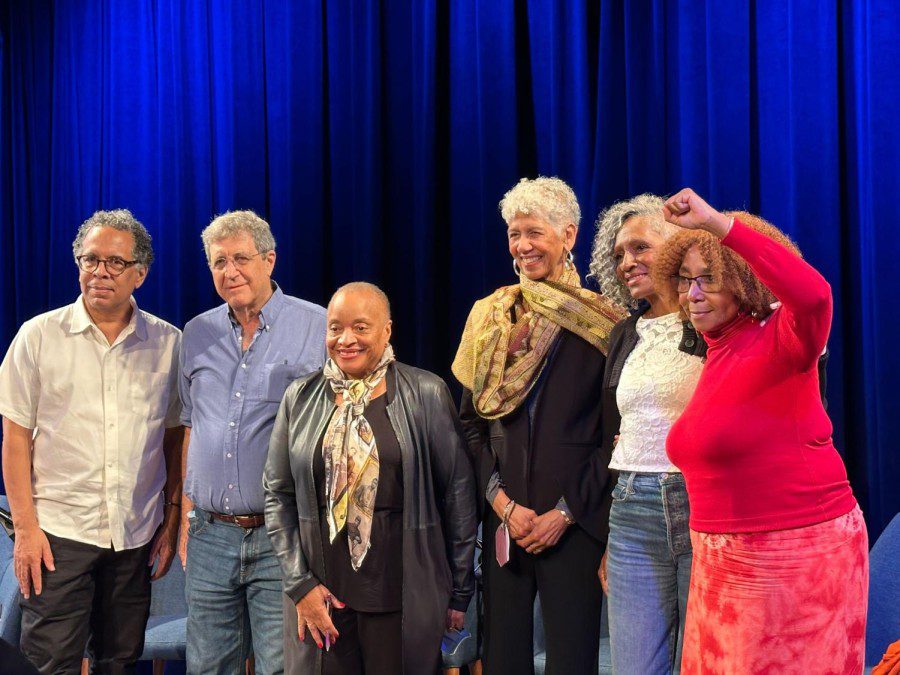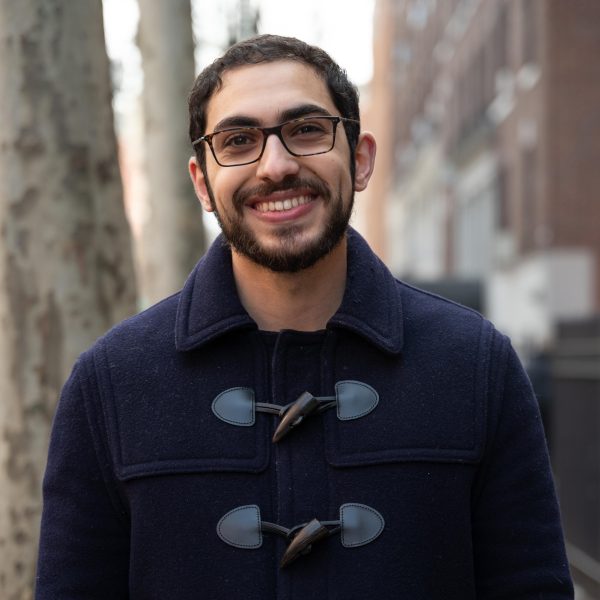Former Black Panthers discuss party history at book launch
Former members of the Black Panther Party reflected on their time with the party at an NYU panel and book launch on Monday, Oct. 24.
An NYU panel discussed the history of the Black Panther Party on Oct. 24. From left: Jeffrey Henson Scales, Stephen Shames, Deborah Willis, Ericka Huggins, Cheryl Dawson and Regina Jennings. (Courtesy of Yezen Saadah)
October 26, 2022
Former members of the Black Panther Party discussed how the revolutionary group impacted their lives at a launch event for two new books about the party’s history on Monday.
“Comrade Sisters: Women of the Black Panther Party” by photojournalist Stephen Shames and former party member Ericka Huggins explores the involvement of women in the party’s outreach programs. “In A Time of Panthers” contains a collection of recently rediscovered photographs from the beginning of the party’s history taken by Jeffrey Henson Scales, a New York Times photo editor and Tisch adjunct professor.
The authors and photographers were joined at the panel by Cheryl Dawson and Regina Jennings, former members of the Black Panther Party. The party, which was founded in 1966, fought against police brutality toward Black people and promoted health and social programs across the country.
About 50 students and faculty attended the event, which was hosted by NYU’s Center for Black Visual Culture at the Institute of African American Affairs.
Henson Scales was 13 years old when he began photographing party members. His new book, “In A Time of Panthers,” is a collection of archived photographs rediscovered in 2018 after being misplaced when he graduated high school.
“We were selling our family home and found this box with 40 rolls of film from 1967 to 1970, and I had not seen these pictures for almost 50 years,” Henson Scales said. “ It was just an amazing experience, and the fact that my mother had put them in a safe place was really something special.”
Henson Scales’ parents had also been involved in the era’s civil rights activism. He said that finding the old film allowed him to reflect on his experiences during that time through his photographs of the Black Panther Party.
Shames and Huggins also discussed their book, “Comrade Sisters,” which includes personal recollections from over 50 women who were members of the Black Panther Party. The book explores how women of all ages and diverse backgrounds were involved in coordinating and sustaining community programs by providing food, housing, education, healthcare and more for the party.
During the discussion, Huggins said that she was introduced to the party when reading about self-defense in an article about Huey P. Newton, who founded the Black Panther Party with Bobby Seale.
“In an article I read in ‘Ramparts’ magazine — which no longer exists — Huey Newton was strapped to a hospital gurney with a bullet wound in his belly,” Huggins said. “I read the article and [my husband] said to me, ‘We should leave,’ and we drove across the country to free Huey. We knew there was something that we, as young people of color, had to do.”
Jennings said that after her first encounter with the Black Panther Party, she was inspired by members of the movement who she believed were strong, well-spoken and looked like her.
“When I joined the party, I was about 17 and was an absolute drug addict,” Jennings said. “I saw sisters like Ericka [Huggins] — she could speak, she was eloquent and beautiful. The role model image that those sisters gave us, who had never seen Black, articulate women, strong women. I knew I wanted to be like those sisters.”
“Not only are women overlooked when the histories are written, but they are also often relegated to a role if they are mentioned,” Huggins said. “We didn’t have a role in the Black Panther Party — we were ‘it’ like the men were.”
Later in the conversation, Dawson spoke about her upbringing in Berkeley, California, after her family escaped from slavery in the South. She reflected on how she felt included for the first time after joining the party.
“That tenderness, love, companionship, belonging, care for our community, care for our elders, care for our children — it can’t be duplicated except if you love the people you serve,” Dawson said.
Contact Yezen Saadah at [email protected].

























































































































































